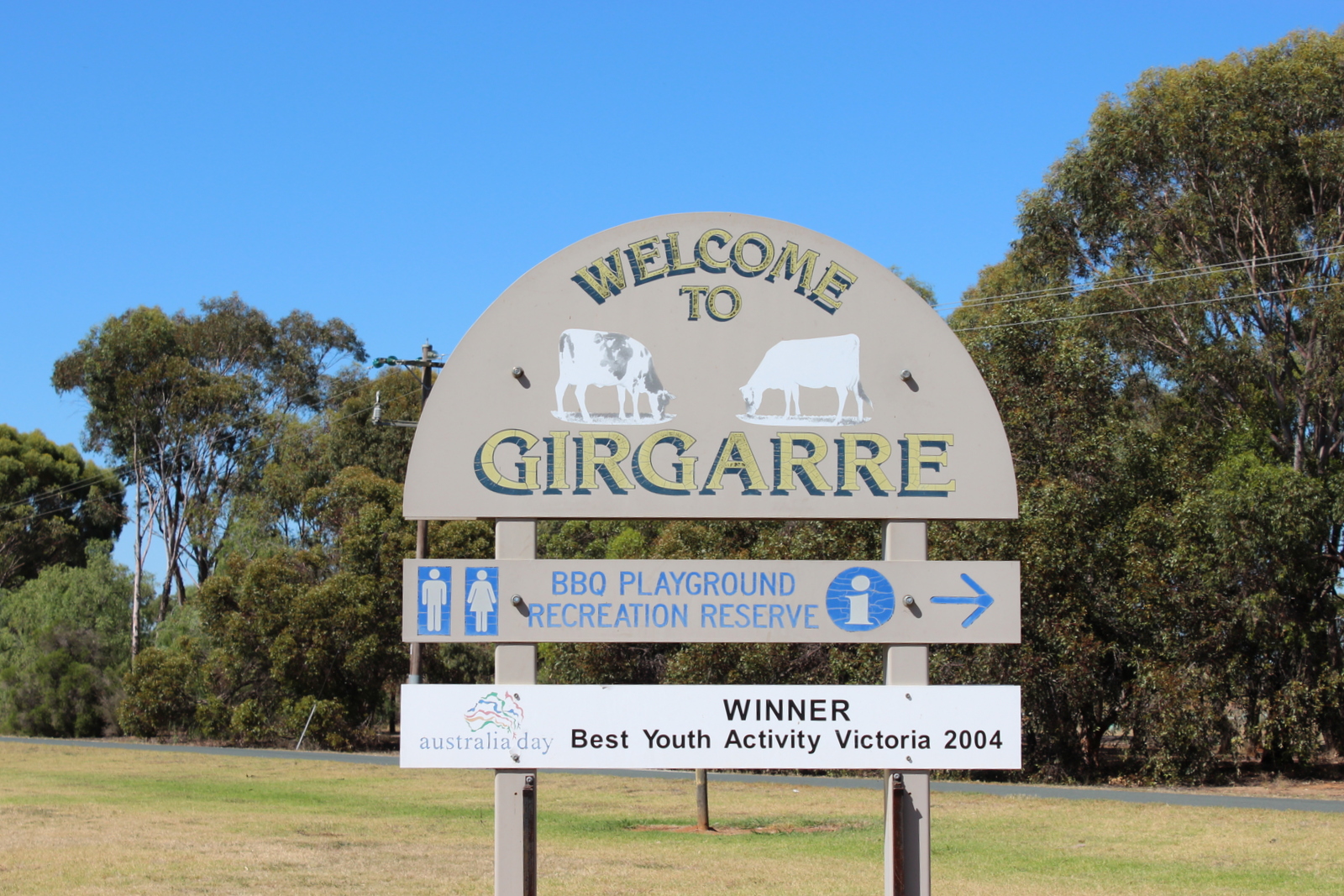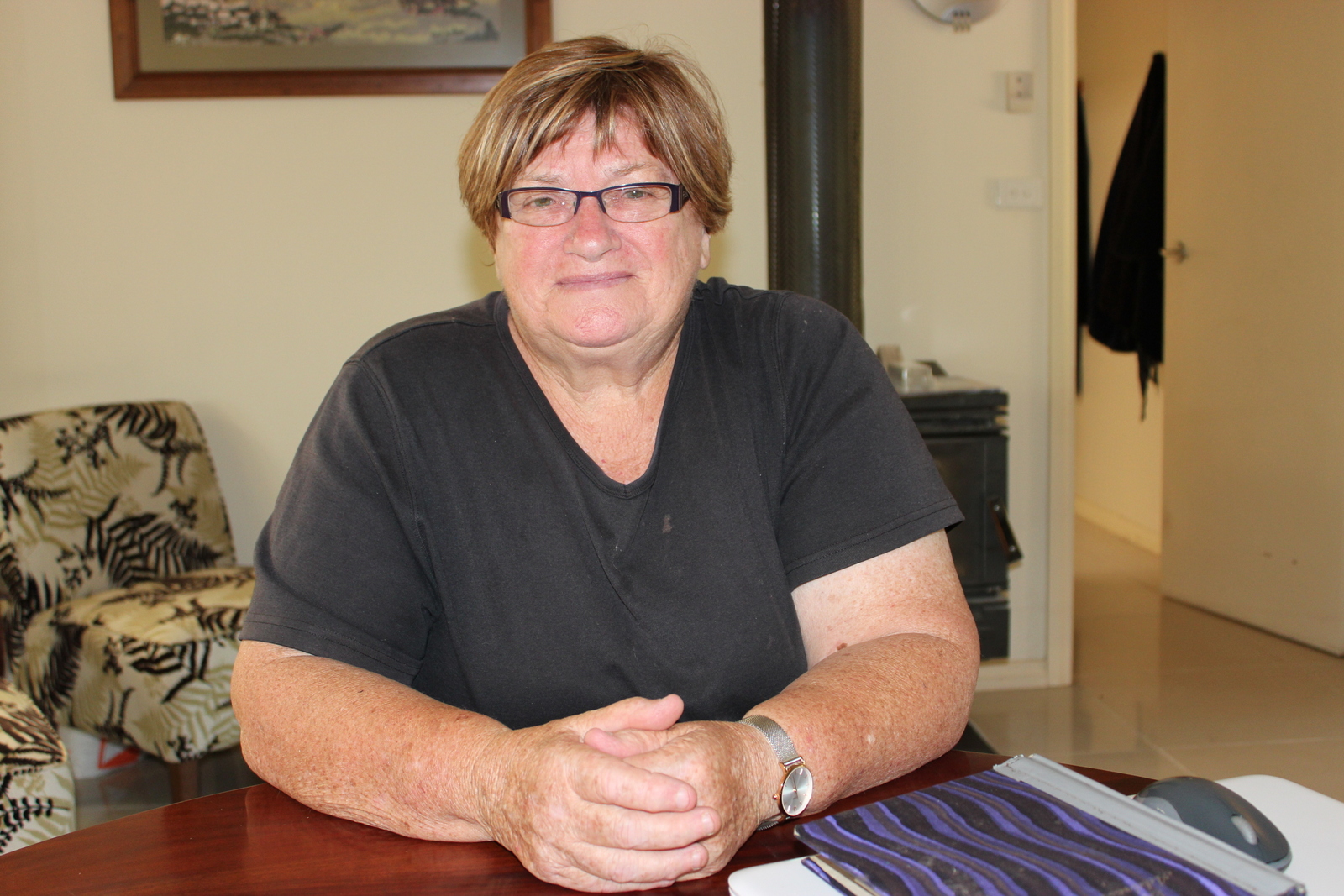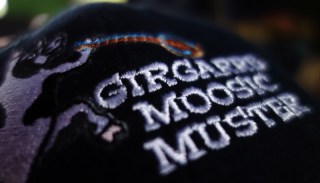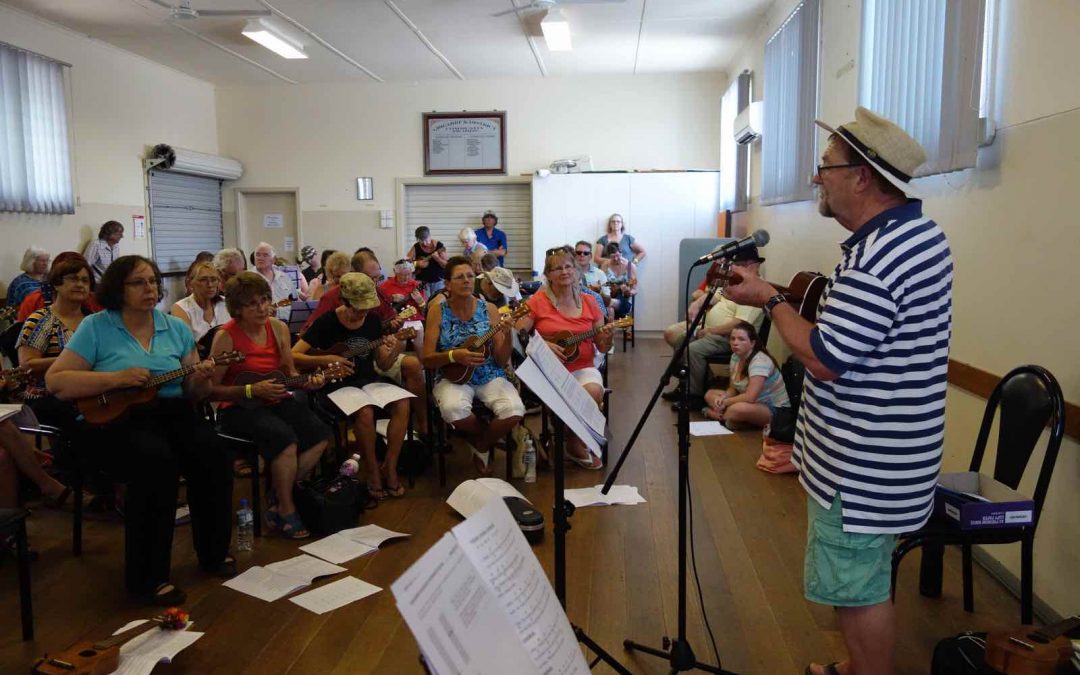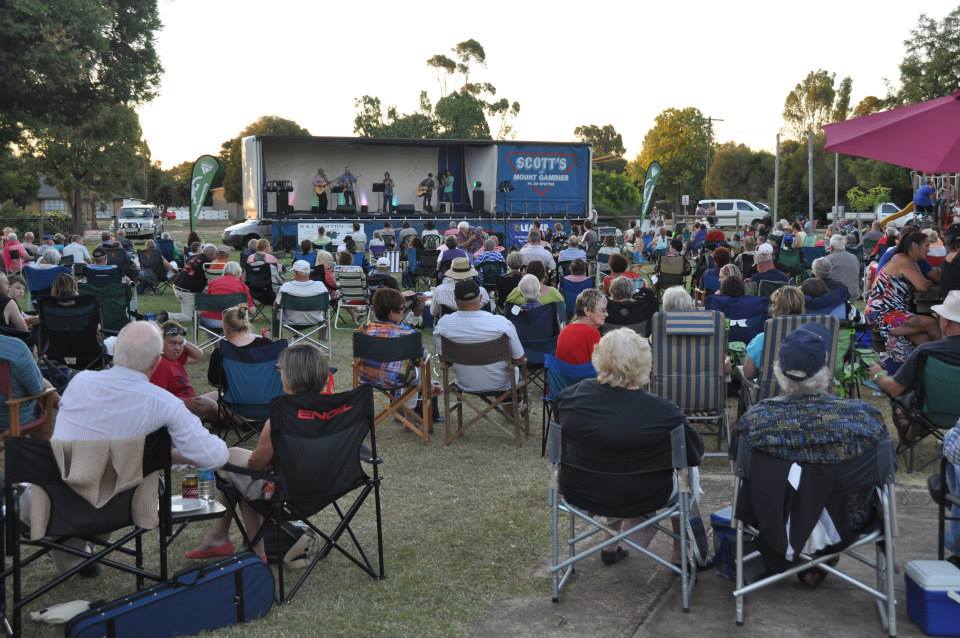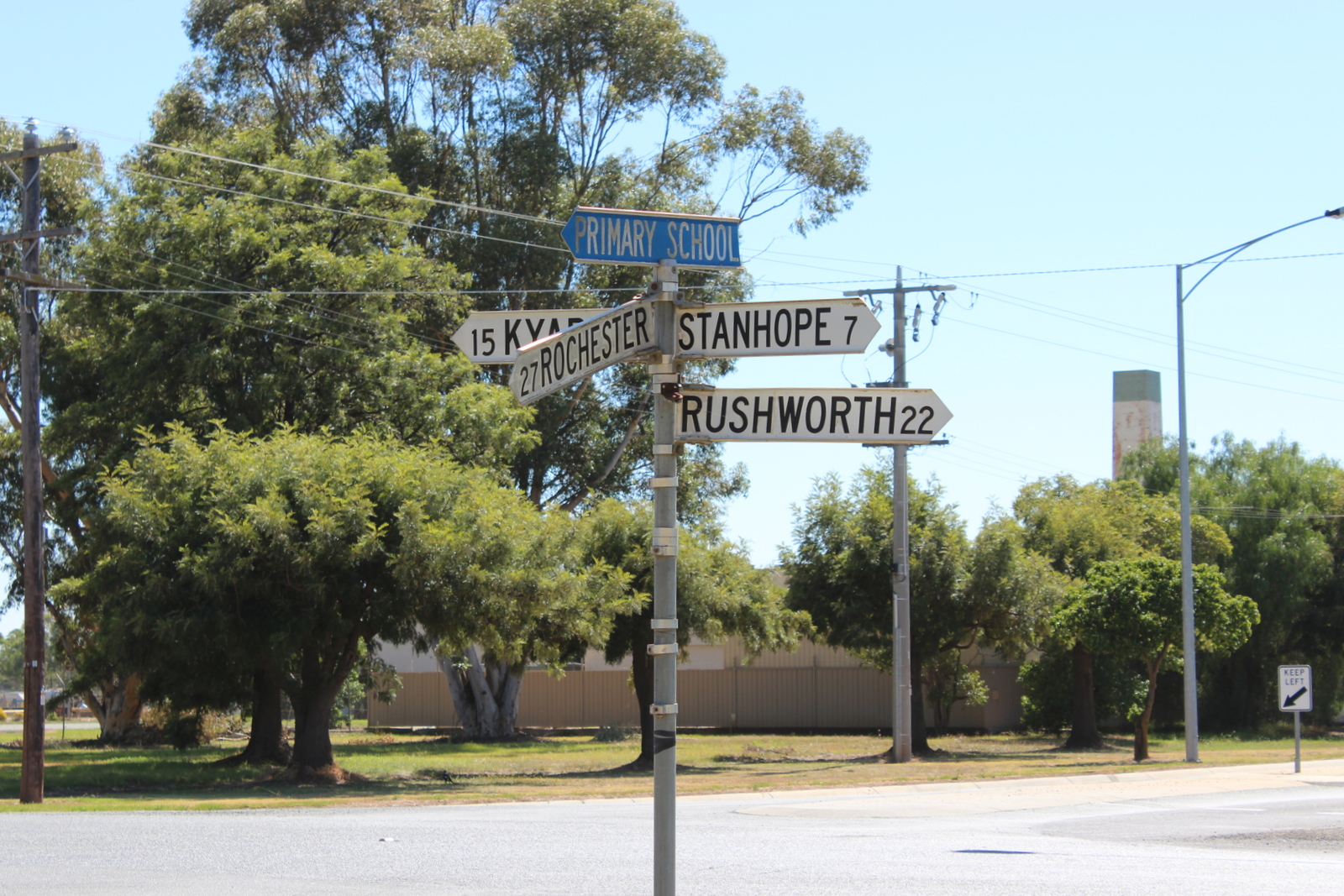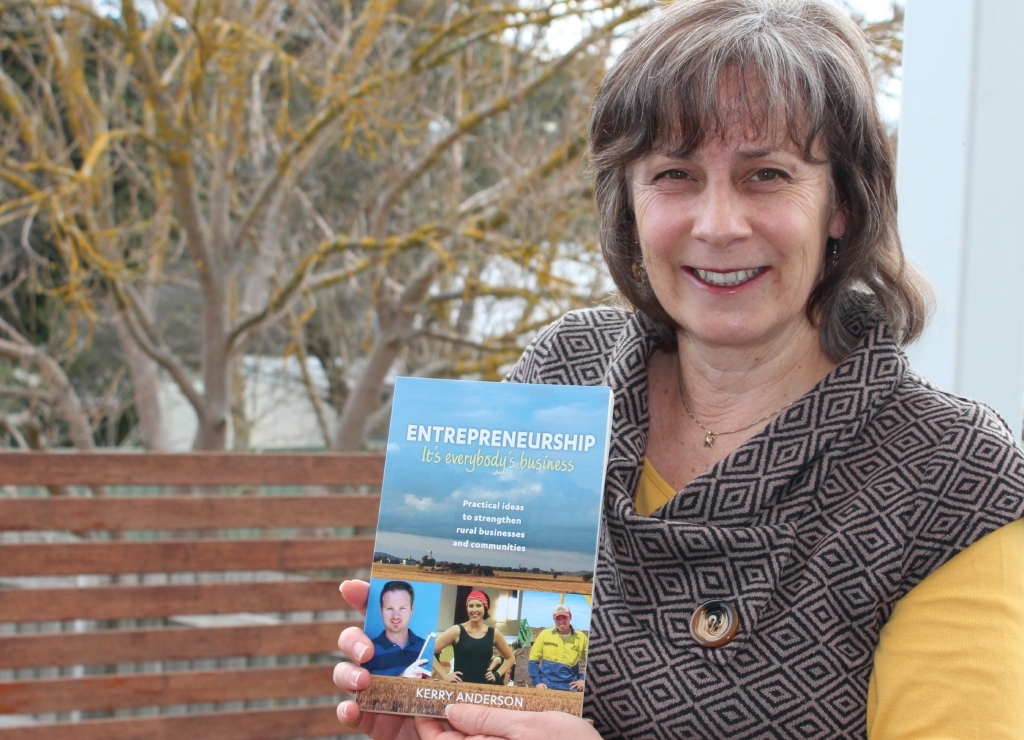Girgarre
RURAL TOWNS FIGHTING BACK series by Kerry Anderson
Traditionally a thriving dairy community, the tiny township of Girgarre in north-central Victoria (population 190) first faltered in 1979 when the milk factory shut down. It later became the Heinz Factory until 2012 when it shut down again. Then there was the big drought of 2003-04. Water prices spiraled out of control, depression was rife, and suddenly a once thriving community was in crisis.
Driving into Girgarre on a hot January morning, there aren’t as many dairy cattle visible as there used to be. I also see camel, goat, chicken, horse and pig enterprises popping up on the surrounding landscape. The local news is excitedly reporting a $60 million investment in a new milk and cheese factory, and works have begun on a new botanical gardens expected to cost in the vicinity of $12 million.
Respectfully, I’d like to suggest that this is not a town on its knees.
Who better to tell the story of Girgarre than Jan Smith, a dairy farmer and former teacher, who is part of the Girgarre Development Committee set up in 2004 to counteract the despair that was mounting in the district as a result of the drought?
‘We put on a barbeque and a bit of entertainment at the produce store,’ Jan recalls. ‘We hoped for 100 but 300 people turned up - I guess it was a safe place to gather. Bells started to ring. We suddenly saw the need to gather the people together.’
After the success of the barbeque the Development Committee started brainstorming what else they could do. An idea put forward to run a monthly Farmer’s Market was met with some scepticism, but the committee didn’t have a better idea and decided to ‘give it a crack.’
‘None of this was easy and we just had to educate ourselves along the way. We knew we couldn’t do it all ourselves so involved all the other community groups,’ Jan explains. “The first market had eight stalls and attracted 1,000 people. The CFA manned the barbeque and I invited a few musician friends from Melbourne to come up and entertain at low cost. The CFA raised $1,000 in one day; where else could they do that?’
One year later, with steady growth and the Farmer’s Market ticking over nicely, Jan invited the musicians back to see what they had helped to start. Happily they responded and brought more musicians with them. After playing in the hall they came up with the idea of an annual music festival.
‘Our eyes rolled,’ Jan admits, ‘but what did we have to lose?’
The twelfth annual Girgarre Moosic Muster concluded just a few days before I visited. Each year it attracts more and more musicians from all over the state who not only volunteer to do the organising themselves but perform and run a series of workshops offering 1,400 places at no cost.
Over the past twelve years, David Aumann, a suburban resident of Melbourne, has been a regular volunteer at the Moosic Muster teaching guitar and mandolin as well as playing in a band and singing harmony.
‘I missed one year when I was on holidays’ he sadly admits but has been privileged to see it grow significantly from its inception.
Chatting with David I get the sense that he very much feels a part of the Girgarre community. ‘We are made so very welcome,’ he says. ‘And we can see what a difference the festival has made to the community. Everyone keeps coming back and bringing a few more musicians with us each time.’
Naturally the locals also pitch in with selling tickets and catering for the hundreds of visitors to make the event a financial success.
‘As long as we give power to the people we can build pyramids in Girgaree,’ Jan proclaims. And they have a long list of conquests to prove they can.
By involving representatives from every community group, the Development Committee has effectively become the voice of the community and can help overcome obstacles as they arise.
When the Shire Council shut the kindergarten, the Development Group financed the service until another service provider could take over. ‘We have 14 children enrolled this year,’ Jan proudly states. ‘Feeding these children into the school is so important, that’s why we have to retain the kindergarten.’
The tennis club folded so the community and a retired life member rallied to revive it. Six teams are currently playing.
With the community car on ‘death’s door’ and no money to replace it, the craft segment of the Farmer’s Market was gifted to the Community Cottage to enable them to fundraise for a replacement car. The Community House created a nursery for this purpose that has now turned into a real cottage industry.
When the RSL came up with the idea of creating a World War 1 monument the Development Group found a suitable space and incorporated a walk. The Living History Group has published a book, and what else would they call it except ‘Girgarre’?
‘Let someone loose with an idea and it is amazing how it can turn into an even bigger idea,’ admits Jan. ‘It’s about being respectful and engaged with people and their ideas.’
When a former school student said they should run a chook auction, Jan readily admits that she had no idea of what it involved let alone its merit. The recreation reserve now runs a highly successful auction of chooks, ducks and geese as part of the monthly produce market which helps them not only maintain but expand the reserve facilities.
‘We’re very proud of our recreation reserve,’ Jan says. ‘With input from a passionate community and our shire council we have beautiful club rooms, great playing surfaces, a second cricket oval, new netball courts, and now we’re planning for three new tennis courts.’
A community dinner is held every Thursday evening at the reserve. ‘It is beautiful to see dozens and dozens of kids running around,’ says Jan. ‘If you have a priority on family you have it right.’
Despite a very slow start from the bureaucrats, plans for a three mile walking track to Stanhope are well underway.
When the Heinz Factory closed down the Development Committee was gifted with 24 acres of land and 70 megalitres of water located opposite the town’s park. A dream of having their own botanical gardens was suddenly a possibility. TLC who designed the much-celebrated Cranbourne Botanic Gardens, was invited to hear Girgarre’s story and took on the project.
‘The project has been costed at $17 million but we think we can do it for $12 million by doing some of the work ourselves,’ Jan explains. Given their track record so far I have no reason to doubt her.
Works on an amphitheatre and sound shell that sit within the botanical gardens have already commenced thanks to a Regional Arts Victoria grant of $350,000.
Since writing this article the Sound Shell was officially opened on 21 April, 2018.
‘We’ve become a very musical town,’ Jan explains. ‘We’ve restored the hall with our fundraising and the new amphitheatre will allow us to seat another 1,000 people. A monthly program, Jigarre Jammin, an off shoot from the Moosic Muster, is held in our beautifully restored hall along with a three day camp twice yearly.’
Simultaneously industry is also being reinvigorated. When the Heinz Factory closed it left behind a good base with connected services for new industry to evolve. Along with the new milk and cheese factory, a grant has also been received to build a bio digestive power plant. Employment is coming back to Girgarre.
And agriculture is much more diversified. ‘It’s taken ten years but suddenly all this beautiful productive land is coming back to life,’ says Jan.
Hmmm. A community in decline? I think not.
‘Our community has decided it has a bright future,’ Jan agrees.
Jan’s top tips for rural communities:
Nobody is coming to save you. Get off your backside and have a crack!
Lose the ‘I’ and find the ‘We’ if you want to change things.
Take a little idea and throw it amongst a group of people then sit back and watch them massage it into something fantastic.
Don’t race off with an idea without designing it properly.
Leave the tent door open so that others can join in and help.
Don’t take ‘no’ for an answer if it is unacceptable. If there is a legitimate reason find an alternative.
You may also enjoy reading about other rural towns successfully fighting back:
KERRY ANDERSON: Founder of Operation Next Gen and author of ‘Entrepreneurship: It’s Everybody’s Business,’ Kerry works with small businesses and rural communities to help them embrace new opportunities. READ MORE
